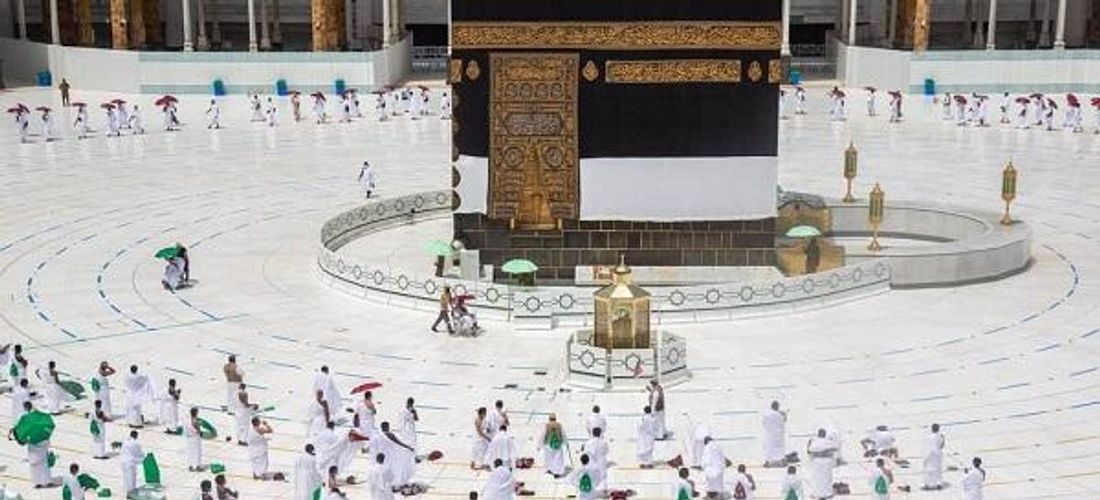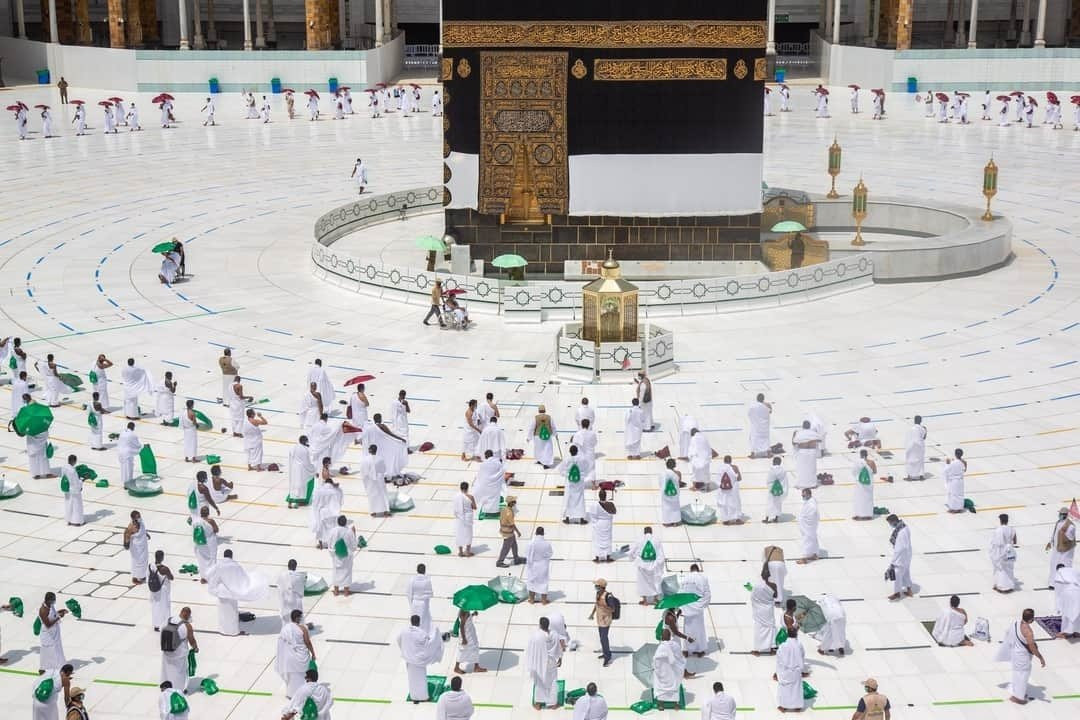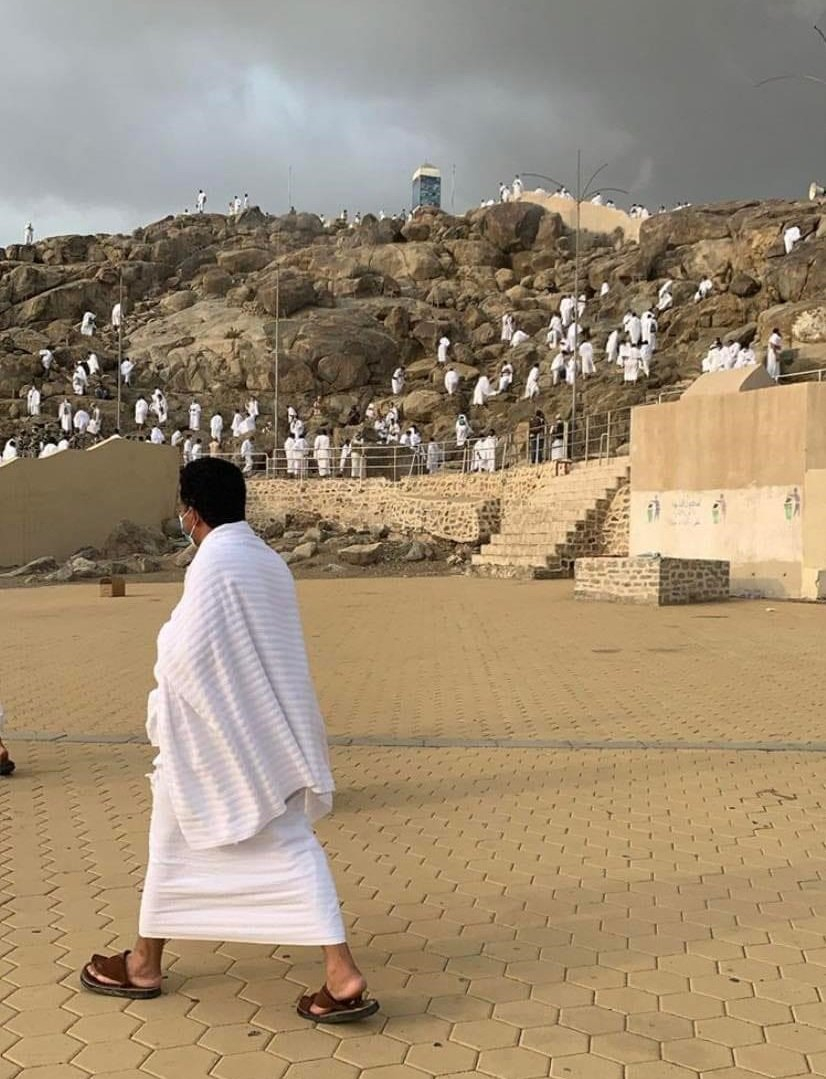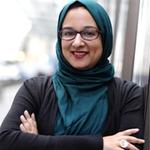On the Holiest Day of Arafat, We Worship Where We Are, We Pour Hearts in Prayer
Lifestyle
|
Jul 30, 2020
|
4 MIN READ

I’m so thankful that the Hajj is still happening. The pilgrims are gathered today on the day of Arafat – where the Prophet Muhammad (saw) gave his last sermon to his Muslim ummah – in prayer and contemplation. Only this year, amid a global and terrible COVID-19 pandemic that has seen more than 16 million cases of coronavirus resulting in more than 600,000 deaths (and counting), the number of pilgrims are reduced from two million plus to around a thousand.

Image source: CAIR-Texas DFW
Imagine if you are one of the lucky locals performing Hajj this year, with all the space and relative peace around you. On one hand, maybe it feels weird to be performing the rituals of Hajj at leisure without the bustle of crowds from all the nations of the world (more or less) also taking part in this most holy pilgrimage. There is something utterly overwhelming, stifling, patience-trying, awe-inducing and mind blowing about the rhythm of the Hajj when two million pilgrims are going through it together.
Or, maybe this day of Arafat, with such a diminished population standing in prayer on the plains outside of Makkah, is one uniquely special, something the likes of which hasn’t happened in centuries – affording pilgrims who are there and Muslims around the world to reflect upon the magnitude of everything that has happened and what Allah (S) may be trying to teach us through all this.
The most beautiful thing about the Day of Arafat to me is that it is a day that is inclusive of all, not just those who are performing Hajj. The Prophet Muhammad (saw) said, “The best day of the year is the day of Arafat.” Muslims who are not performing Hajj are still able to reap the immense rewards of this day and are encouraged to fast so that Allah may expatiate the sins of last year and the sins of next year, Insha'Allah! We’re also encouraged to engage in more ibadah (worship) through salah, Quran reading, dhikr and self-and-God-reflection.
On the holiest day of the year, we are asked to worship where we are.
Most of us every year are not physically on the plains of Arafat. That honor often comes once-in-a-lifetime for so many Muslims. This year, only about a thousand of our fellow Muslims are actually there, while the rest of us are pretty much in our homes. It’s interesting how important our worship within the walls of our homes has become during these four months and counting of the COVID-19 pandemic.

There are plenty of webinars, zoom meetings, videos to watch and online events happening for the days of Dhul Hijjah and Arafat, but the communal acts of worship are still quite curtailed, as they should be. But today, regardless of the state of the world, our worship is centered at home, wherever we are. It is private and introspective, between us and Allah (S).
Indeed, if COVID-19 has taught us anything about our faith as Muslims, it’s that while our masajid and structures of faith are so important, solidifying our beliefs and our gratitude in our hearts is probably the best way to keep those ties to Allah (S) strong.
The masjid may not always be open or even welcoming for you. You may not get to go to Hajj or the plains of Arafat. But Arafat is brought to you wherever you are. Right here, right now, however you are, in whatever spiritual (or not) state you are in, you can connect with Allah (S). Holding fast to His rope is one of the bravest and hardest things you can decide to do when it all feels so difficult and nothing makes sense.
So, I pray you are digging deep and leaning into your worship today. If you are able to fast, I pray your fast is an easy one that helps you feel that connection with this holy day. The Prophet Muhammad said:
“On this day, Allah, the most Exalted, descends to the nearest heaven, and He is proud of His servants on the earth and says to those in heavens, look at My servants, they have come from far and near, with hair disheveled and faces covered with dust, to seek my Mercy. Even if their sins are as much as the sand or the foam of the sea, I shall forgive them.”
We don’t know if we’ll live to see another Day of Arafat, or even another Ramadan. Our time here is limited, and this day puts that into perspective. So, pour your heart in prayer. Pray for yourself, for guidance, for forgiveness, for anything and everything you could ever want. Pray knowing your Lord is bigger than any of your pains and troubles.
Pray for this pandemic to end, for health and healing, for justice for those who need it most, for peace and happiness, for rights to be wronged, and those suffering to receive ease. Receive the gift that this day is. And, may it resonate in your heart, though we may not be able to be physically together. Ameen.
If you want to learn more about the power of du'a, and how to make it, watch this Haute Hijab Halaqa lead by Ustadha Mariam Amiribrahimi.
Subscribe to be the first to know about new product releases, styling ideas and more.
What products are you interested in?

